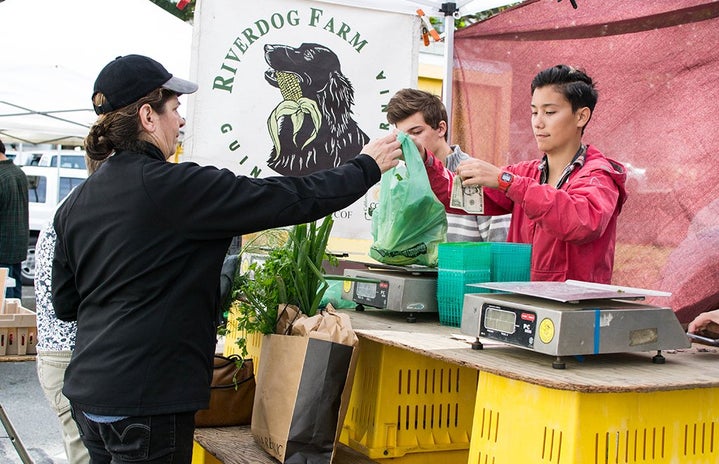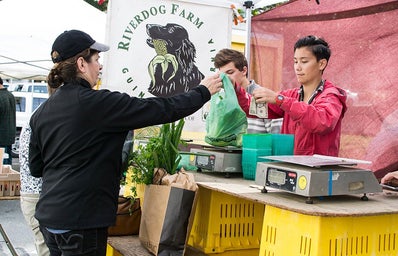In our increasingly climate-conscious society, shopping local is a phrase you may have seen on that latest Instagram infographic or from your environmental science professor. However, the monotony of this phrase amongst the ongoing clamor of the climate emergency tends to become muddled in our minds.
With environmental terminology like the Three R’s and carbon footprint being thrown about, it may be difficult to sort out exactly what these phrases mean and how they apply to our lives.
As young adults, it’s easy for us to feel anxious about the future of our planet in the face of such uncertainty. However, what we can do is recognize the impact our own actions have, no matter how small, and advocate for a cleaner future in the long run.
So, what is shopping local?
Shopping local is really all about the choices we make. When you as a consumer decide to buy from businesses within your community, instead of larger chains or retailers, that’s shopping local. This can be done for a variety of items: the clothes you buy, fresh produce, even your daily cup of coffee. Think farmers markets and locally owned clothing stores — all of which rely on support from customers to stay in businesses.
What’s the environmental impact?
The environmental benefits to buying local are highly rewarding, having an impact on the planet as well as your community. Goods purchased locally are typically produced in the same area, meaning the costs of transportation and production are greatly limited. This cuts down on pollution and the fuel consumption it takes to bring items from miles away, according to Go Green. Also, buying food from local farms (often via farmers markets) helps the preservation of sustainable farming practices and promotes biodiversity within protected farmland. Supporting local farms protects the land and wildlife from commercial developers, who damage land with harmful practices. Additionally, these farms provide preservative-free food that is higher in nutrients than commercially-fed produce, according to Arrowquip.
Why should I do it?
Especially as college students, shopping locally can seem more like an inconvenience than a benefit. With our busy schedules, many of us barely have time to go out and shop in the first place. However, the city of Gainesville provides many opportunities for its student population to get involved with its local businesses. Round up your friends for a trip to that cool coffee shop or grab some fresh produce from the farmers market: any little bit helps. You can even take the opportunity to walk or carpool, cutting down carbon emissions. Making purchases from your community not only benefits the planet, but also the local economy and its small business owners.
Environmentally Friendly Local Businesses
- GNV Market: held every Thursday from 4 p.m. to 8 p.m.
-
This Gainesville farmers market recognizes several local vendors, including small farms and various shops within the community. All food being sold is sustainably produced, and they support local musicians through community performances. Check it out for some fresh produce and music!
- Life Unplastic
-
Keeping sustainability in mind? Life Unplastic sells plastic-free goods, promoting reusable items to help people reduce waste. These items include laundry supplies, bathroom items and a variety of everyday goods intended to be used in the long term.
- Redefined Goods
-
This Gainesville-based seller handmakes tote bags, slings and bucket hats for all college students’ needs. All items are made from secondhand materials, so you’ll be part of the cause in reducing waste. The business restocks over the months, and even holds the occasional pop-up sale — so no time to waste!
- Nature’s Dye
-
All-natural and ethically sourced? That’s calling our name! Nature’s Dye uses natural dyes to design unique, down-to-earth apparel — always with sustainability in mind. This business furthers an environmental cause by hand making clothing, which will persevere through the fashion cycle.
- Third House Books
-
Switch out purchases from commercial booksellers for this independent bookstore. They specialize in smaller book houses with the intent to preserve local booksellers. Buying local from bookstores builds a sense of community and supports owners alongside the environment.
Shopping local has a greater impact than what first meets the eye, but truly it all comes down to helping people. You can support your community’s business owners just by going to the next farmers market or checking out that store in town. Doing your part to make our planet cleaner is all based on our decisions, and that can begin with shopping local!
Find even more local businesses using this link.


